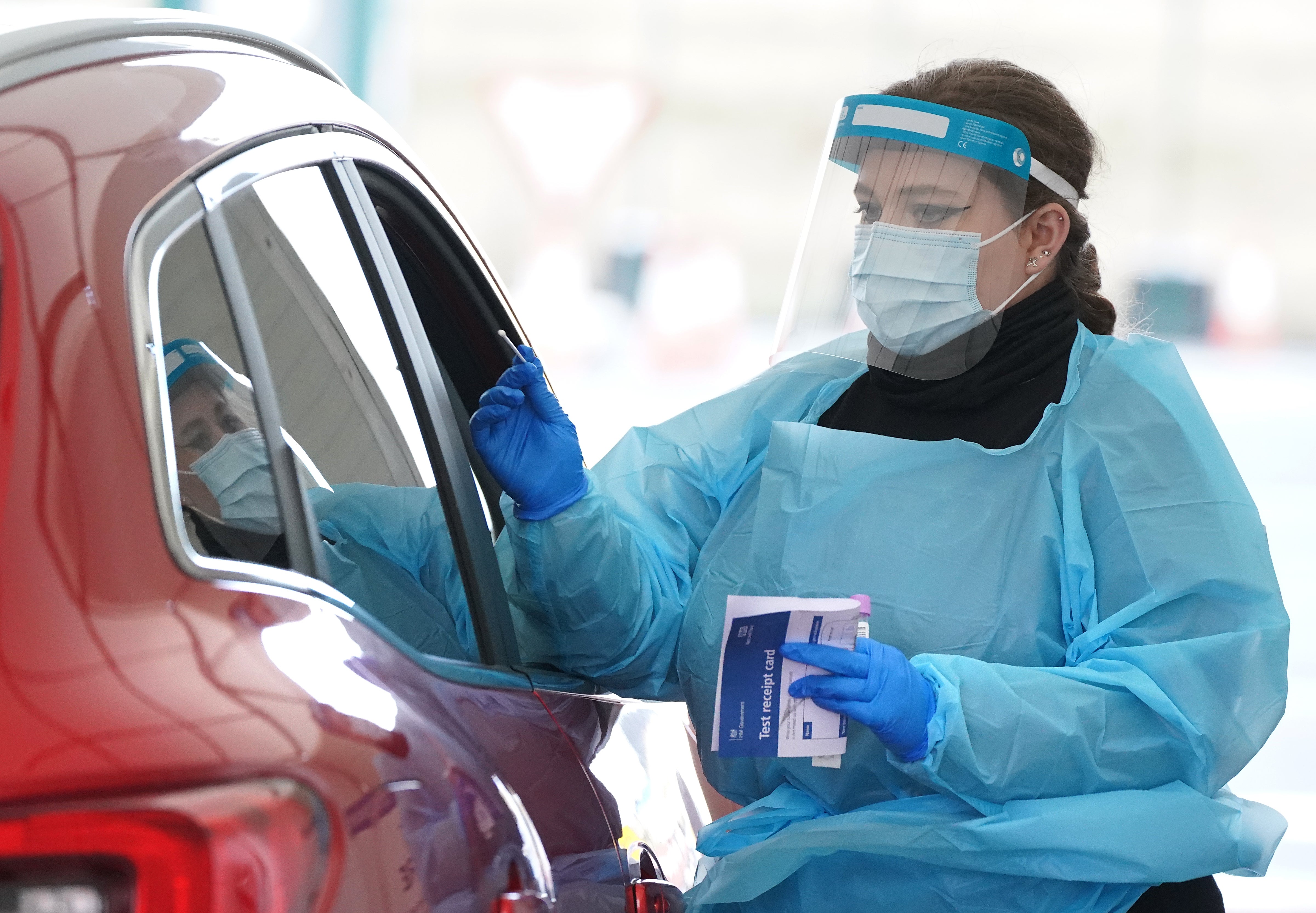Scotland records second-highest number of new Covid infections
There were 17,259 new cases of Covid-19 recorded on Tuesday, the Scottish Government announced.

Your support helps us to tell the story
From reproductive rights to climate change to Big Tech, The Independent is on the ground when the story is developing. Whether it's investigating the financials of Elon Musk's pro-Trump PAC or producing our latest documentary, 'The A Word', which shines a light on the American women fighting for reproductive rights, we know how important it is to parse out the facts from the messaging.
At such a critical moment in US history, we need reporters on the ground. Your donation allows us to keep sending journalists to speak to both sides of the story.
The Independent is trusted by Americans across the entire political spectrum. And unlike many other quality news outlets, we choose not to lock Americans out of our reporting and analysis with paywalls. We believe quality journalism should be available to everyone, paid for by those who can afford it.
Your support makes all the difference.Scotland has registered its second-highest number of new coronavirus infections, although the latest figure is almost 3,000 behind the previous day’s record number of cases.
Covid-19 statistics released on Tuesday show there were 17,259 new infections reported in Scotland, with a test positivity rate of 35.3%.
It is significantly below the 20,217 cases recorded on Monday, although Public Health Scotland has warned there are currently delays reporting test results.
Patients in hospital with coronavirus have risen by 116 to a record high of 1,147, including 42 patients in intensive care, an increase of three.
A total of 4,384,343 people have received their first dose of a Covid-19 vaccination, 4,022,821 have received a second dose, and another 13,550 people have had their third dose, taking the total number of boosted Scots to 3,006,133.
With pupils set to return to school this week, Dr Christine Tait-Burkard, of the University of Edinburgh, has warned that it is “almost inevitable” that Omicron cases will rise when pupils return to school this week.
Dr Tait-Burkard said the prevalence and transmissibility of the new variant of Covid-19 mean it is highly likely case numbers will rise.
The Scottish Government has urged secondary school pupils to take a lateral flow test before returning to school this week to limit the spread of Omicron, while those aged 12-15 are being encouraged to come forward for their second coronavirus jab for which they are now eligible.
Dr Tait-Burkard, a research fellow at the University of Edinburgh’s Roslin Institute and an expert on coronaviruses, said cases are likely to increase even with mitigating measures.
The virus is very, very prominent in the population at the moment
She told BBC Good Morning Scotland: “It’s almost without a doubt that, when schools return, our numbers will increase further.
“The virus is very, very prominent in the population at the moment – the week before last, one in 40 people in Scotland had the virus, and that means as soon as schools return, with such a high transmissibility of Omicron, the numbers will rise further, that is almost inevitable.”
Asked whether this will happen even with mitigations such as mask-wearing and increased ventilation, she said: “Even with mitigations. As we’ve seen in the past they help to slow things down, just as they have slowed Omicron down quite successfully, actually, over the general population, but it’s both children returning to school, parents returning to workplaces, which will help the virus spread further than it has before.”
Meanwhile, teaching union the Educational Institute of Scotland (EIS) said there is a “degree of nervousness” among members as pupils return from Wednesday.
Safety guidance for schools was updated in December in light of Omicron and mitigations include physical distancing, one-way systems and the correct use of face coverings.
EIS general secretary Larry Flanagan told BBC Good Morning Scotland: “There will be a degree of nervousness, I think, because Omicron hadn’t really impacted dramatically on schools pre-Christmas. We saw an increase in absences in the final week or so, but the return this week for most schools, this will reveal just how significant the impact of Omicron has been.
“And I think that, for many staff members, there may well be concern that we will see a further spread of infection within schools just given the high numbers of children and staff who will have been infected.”
Deputy First Minister John Swinney said he thinks the testing system can cope with the return to school.
He told the broadcaster: “I think it can.
“Obviously it’s important that individuals undertake those lateral flow tests, that is a critical part of our defence against Omicron.
“I think what’s encouraging is that the level of lateral flow device testing is high, many individuals are participating. The most recent data I’ve seen indicates that, in the last seven days, 85% of the population took part in lateral flow tests, which is very, very good.
“But obviously, as people return to school, staff, pupils, as people return to the workplace, it’s important that they do that before they embark on it and then, of course, if they’re positive, to take the necessary steps to receive a PCR test.”
Pushed on whether there are enough PCR tests, he said: “I think there will be congestion at different points.
“It’s impossible for me to give you a guarantee that at individual test sites there will not be challenges in particular geographies, but I’m confident that we have got a strong testing proposition.”